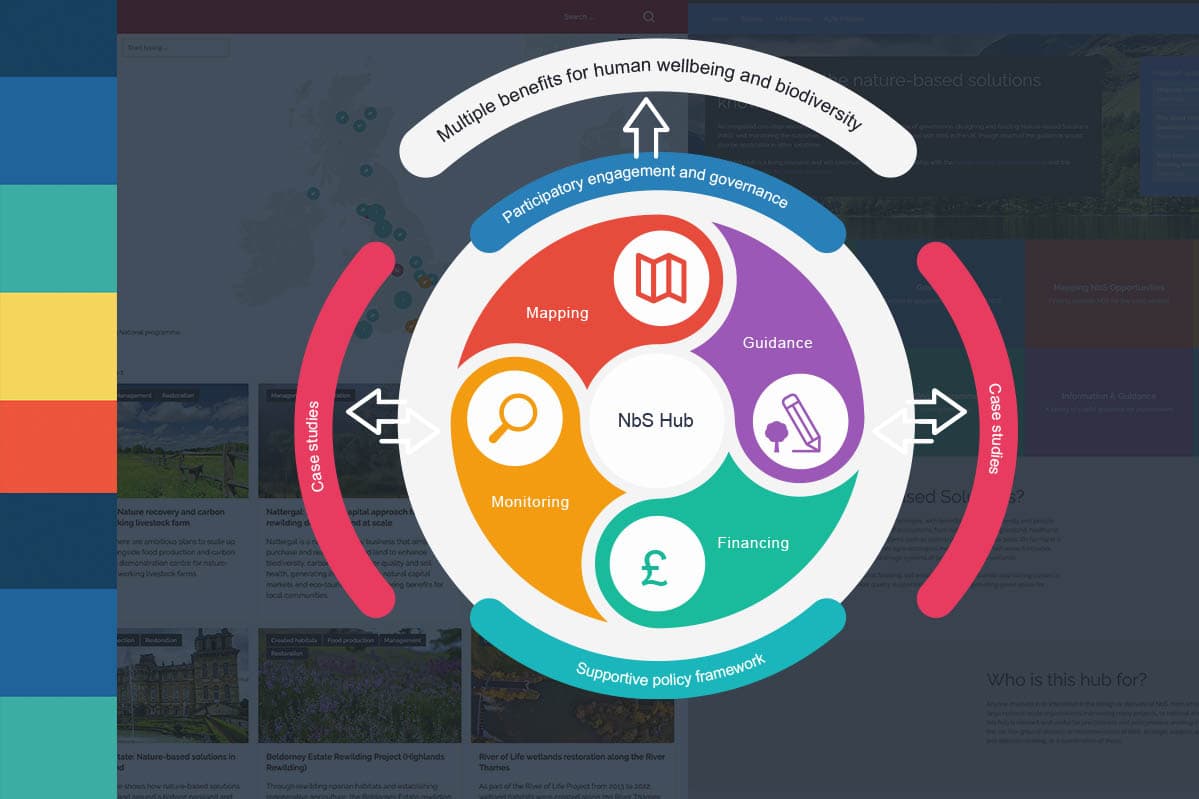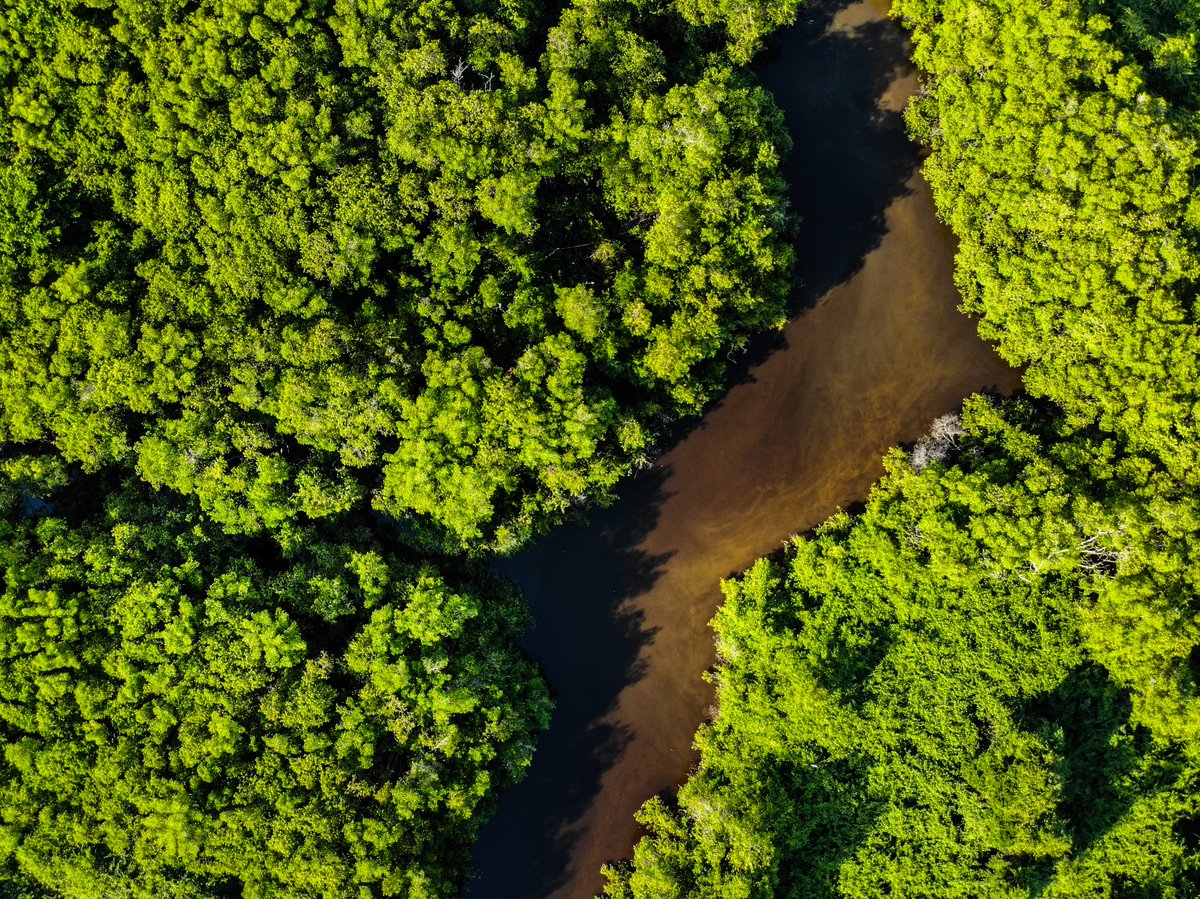Mapping the evidence of nature-based solutions for climate change adaptation

Our systematic review on the effectiveness of nature-based solutions for climate change adaptation has been published in Global Change Biology. It is the first global systematic review of the effectiveness of nature-based solutions and provides evidence that nature-based solutions play a key role in addressing the impacts of climate change, but also highlights potential trade-offs to be avoided and evidence gaps where further study is needed.
The review investigates nearly 400 scientific studies including both real-world cases, and modelled scenarios. Of the real-world cases, most nature-based interventions (59%) were found to reduce climate impacts such as flooding, soil erosion and loss of food production, although in 12% of interventions some negative climate impacts were exacerbated.
Social, environmental, and greenhouse gas reduction benefits were also reported from nature-based solutions, supporting the proposition that they have an important role to play in global efforts to mitigate climate change and biodiversity loss, while also achieving other sustainable development goals. Although comparative studies were rare, where data were available nature-based solutions were found to be as or more effective than alternative approaches.
You can explore the evidence for yourself in our open-access interactive tool: www.naturebasedsolutionsevidence.info. This tool is the first of its kind, and is designed to help policymakers, practitioners and scientists identify evidence for the effects of specific types of nature-based solutions on climate impacts, greenhouse gases, biodiversity and local people.
‘This review shows that there is a wealth of evidence that nature-based solutions can and should play a key role in countries’ plans to mitigate and adapt to climate change,’ says Professor Nathalie Seddon, study author and Director of the Nature-based Solutions Initiative at the University of Oxford. ‘But not all solutions are equally beneficial. Evidence from artificial systems, such as tree plantations made up of non-native species, often found trade-offs, where some benefits are offset by adverse effects such as decreased water availability.’
Nature-based solutions are actions that work with and enhance nature to help address societal challenges while also supporting global biodiversity. Tree-planting is a well-known example with the potential to remove carbon dioxide from the atmosphere and help achieve net-zero emissions targets. Other examples include protecting old-growth forests to reduce floods and landslides, and restoring coastal ecosystems as a defence against storms and sea level rise.
‘We hope policymakers will use this research to better understand which nature-based solutions are most effective, and how they can help with climate-related challenges while providing social and environmental benefits,’ explains Alexandre Chausson, study author and senior researcher in the Nature-based Solutions Initiative, University of Oxford. ‘It’s not just about tree-planting and greenhouse gas removal. In many cases nature-based interventions can help communities adapt to the wave of climate change impacts we’ve seen over the past months, from record-breaking heatwaves to wildfires and hurricanes.’
‘Although seeing nature-based solutions solely through an economic lens can undervalue their benefits, it’s also important to highlight their role in the green economic recovery from COVID-19,’ adds Alison Smith, study author and researcher at the Environmental Change Institute, University of Oxford. ‘In the UK for example, restoring peat bogs or native woodland has been highlighted as a potential source of green jobs.’
‘Nature-based solutions can also provide goods and services that help to buffer communities when other sources of income fail,’ adds Beth Turner, study author and researcher at the Nature-based Solutions Initiative. ‘In Zimbabwe, for example, protected forests provide honey to supplement food and income when crops are lost to droughts. And beyond monetary value, properly implemented nature-based solutions can empower communities and build equity, which can contribute to climate change resilience in the long term.’
While the study highlights many successful nature-based solutions, there are still considerable research gaps. In particular, the evidence base is biased toward the Global North, despite communities in the Global South being generally more vulnerable to the impacts of climate change and having the highest direct dependency on natural resources. There is also a great need for assessments of cost-effectiveness of nature-based solutions compared to alternative interventions, and integrated assessments looking at multiple different types of outcome (climate change adaptation and mitigation, social and ecological outcomes) simultaneously from the same nature-based solution, aiding identification of synergies and trade-offs.
Written in collaboration with Lucy Erickson, Head of Strategic Communications at the Environmental Change Institute, University of Oxford




